Pan-African Cinema
This Winter Quarter program at Doc Films is planned in conjunction with a series of exhibitions on cultural Pan-Africanism taking place at the Art Institute of Chicago. These include the major thematic survey Project a Black Planet: The Art and Culture of Panafrica on view at the Art Institute through March 30. The show includes a commissioned mural by The Otolith Group that composites and compares the films of Senegalese directors Ousmane Sembène and Djibril Diop Mambéty, giving a point of departure for our program as well with a feature and lesser-known short from each. Cinema has been essential to popularizing and circulating Pan-Africanist ideas, not least by demonstrating the modern and contemporary cultural achievements possible in Africa. Beyond individual films, these achievements resonate in the spread of cinema infrastructure, particularly when it gathers audiences and generates conversations. The Pan-African Film and Television Festival (FESPACO), held biannually in Ouagadougou since 1969, gives a famous example; for another one can cite the numerous international queer film festivals organized since the 1990s in Johannesburg, Gaborone, Kampala, and elsewhere. While by no means comprehensive, this selection of films from the 60s to now offers an additional angle from which to view the ideas and achievements of Pan-Africanism. The final film in this series, the genre- and geography-bending Soleil Ô, will be screened directly ahead of Panafrica Days (March 5-8), a citywide program of talks, shows and events, most of which are free and open to the public.
Xala (1975)
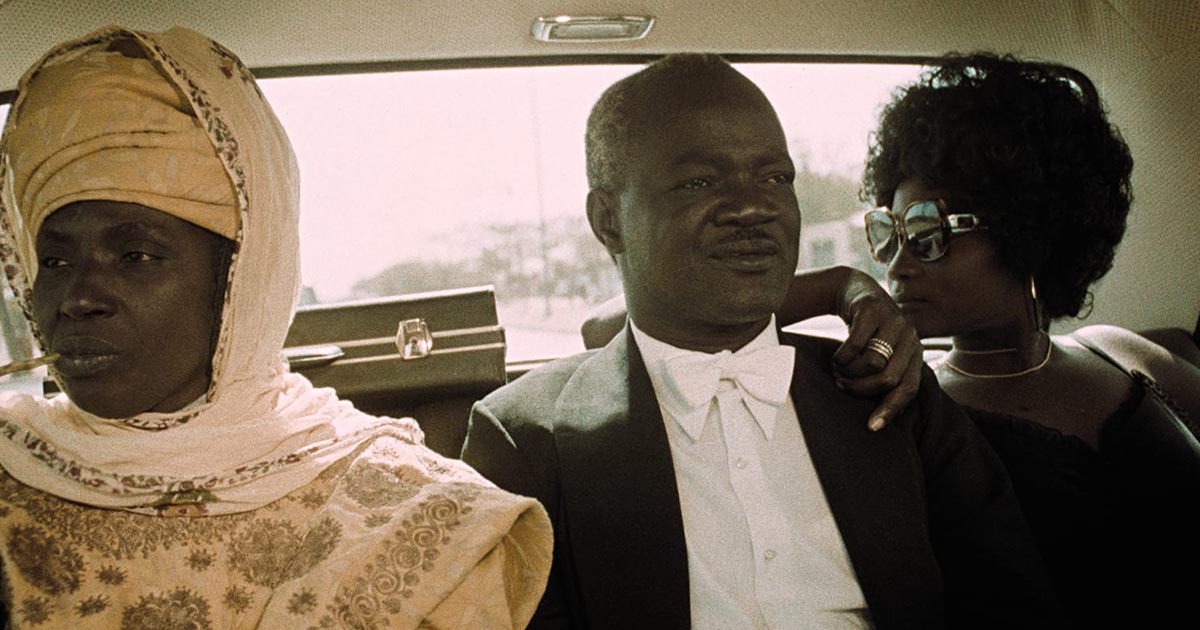
Ousmane Sembène · 123m · DCP
From the influential author of postcolonial Francophone literature, Xala is Sembène’s film adaptation of his own satirical novel by the same name. When Senegalese tycoon El Hadji (Thierno Leye) is unable to consummate his third marriage, he suspects an ex-wife has cursed him with sexual impotence. In fact, it has more to do with his history of corrupt dealings and embezzlement, and he learns that he must undergo humiliating repentance to lift the hex.
Tuesday, January 14th 7:00 PM
Hyenas (1992)
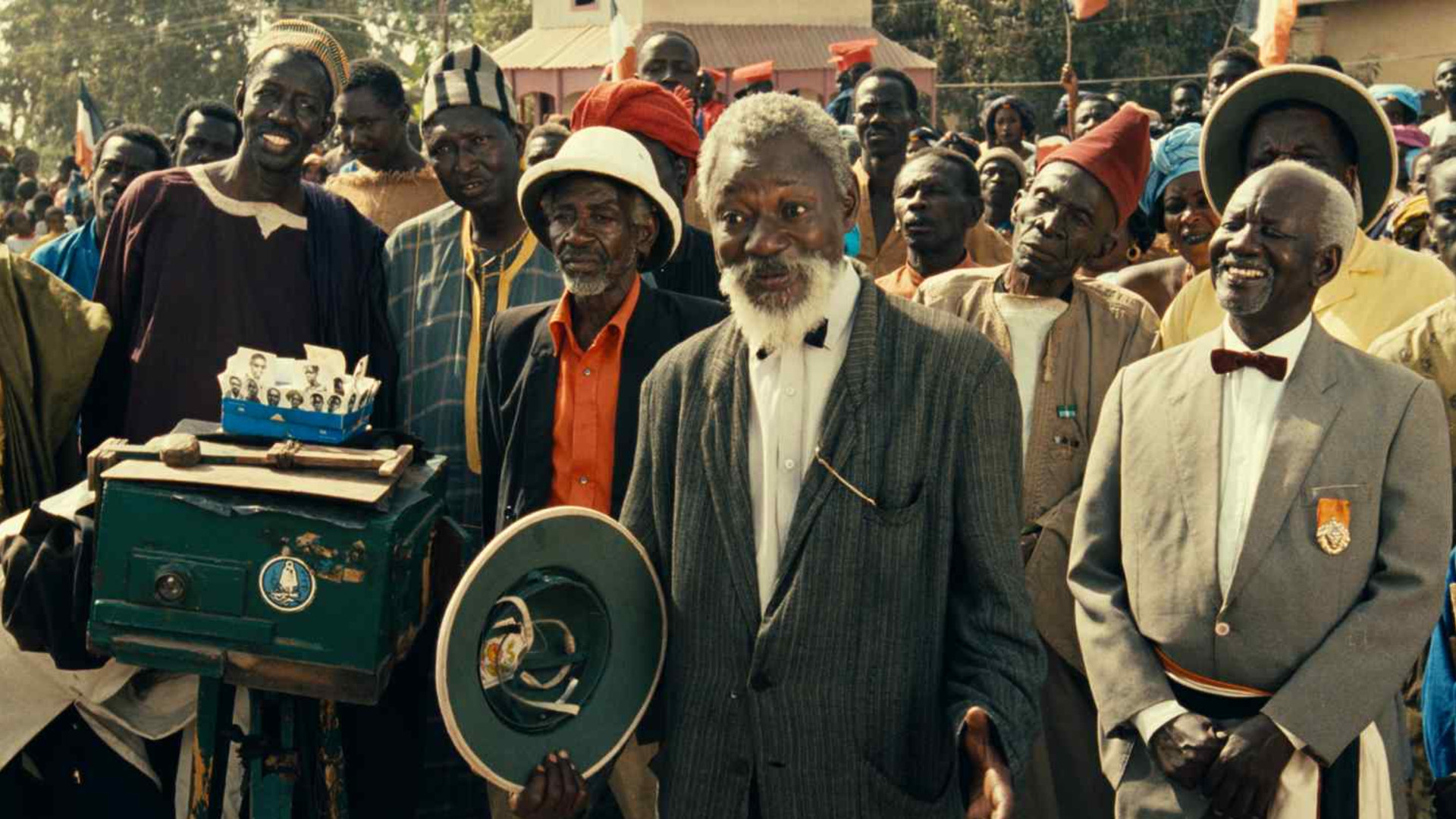
Djibril Diop Mambéty · 110m · DCP
Inspired by Friedrich Dürrenmatt’s play The Visit, Hyenas tells the tale of a formerly ostracized woman who, now wealthy, returns to her struggling village and offers support in exchange for the execution of a man who has wronged her. As riches flow, the villagers find her shocking offer increasingly appealing. Mambéty’s dark, satirical view excels in portraying a postcolonial world that has eschewed true liberation for greed and power.
Tuesday, January 21st 7:00 PM
Borom Sarret / The Little Girl Who Sold the Sun (1963 / 1999)
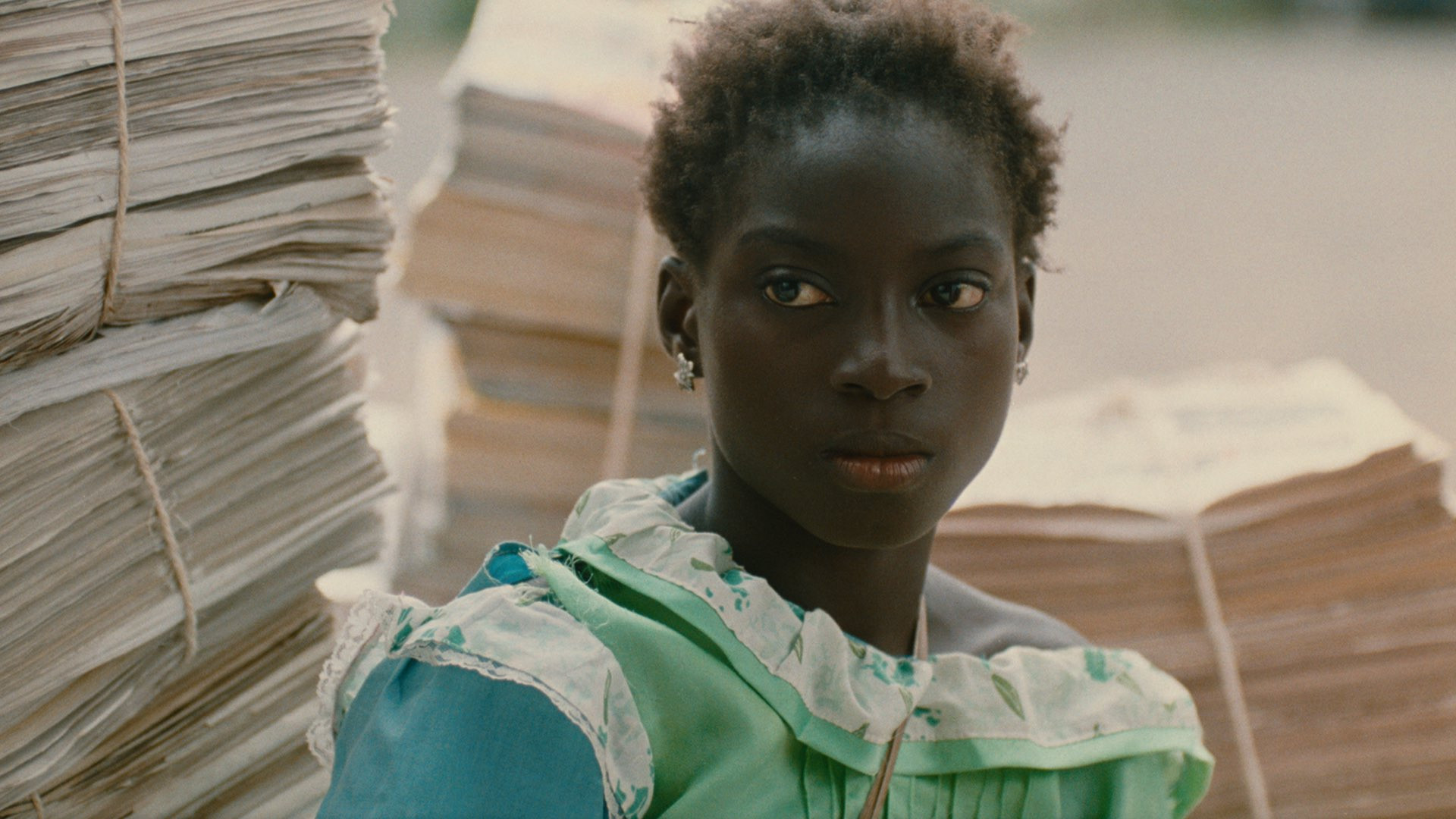
Ousmane Sembène / Djibril Diop Mambéty · 20m / 45m · Digital / DCP
Ousmane Sembène’s debut Borom Sarret portrays the effects of European colonialism in Africa through the injustices a poor Dakar cart driver faces in a day’s work. In The Little Girl Who Sold the Sun, highlighting the resilience of street children in Dakar, Mambéty tells the story of Sili, a young handicapped girl determined to defy gender norms by selling newspapers in a boy-dominated market.
Tuesday, January 28th 7:00 PM
The Pan-African Festival in Algiers (1969)
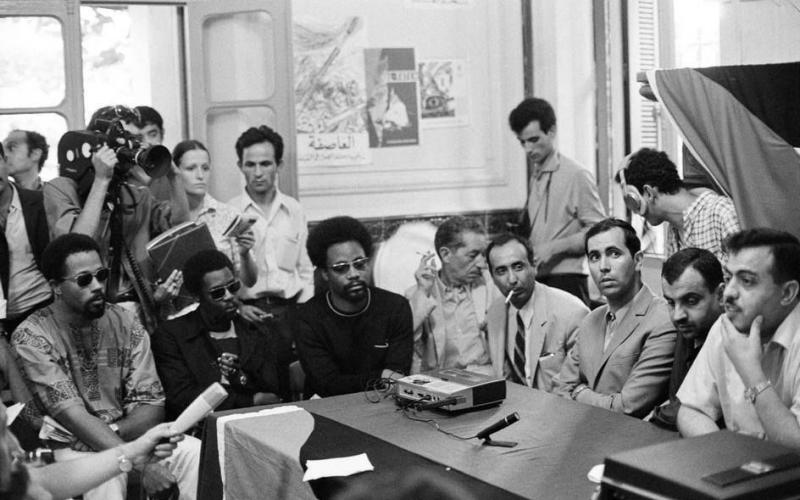
William Klein · 110m · Digital
The 1969 Pan-African Festival of Algiers was a celebration of African culture and gathering of liberation movements that took place in the newly independent country. The 12-day festival, featuring political speeches and performances from artists like Nina Simone and Miriam Makeba, drew over 5,000 attendees. The festival’s preparations and performances are shown alongside interviews with participants. Sarah Maldoror assisted on this William Klein documentary.
Tuesday, February 4th 7:00 PM
Dahomey (2024)
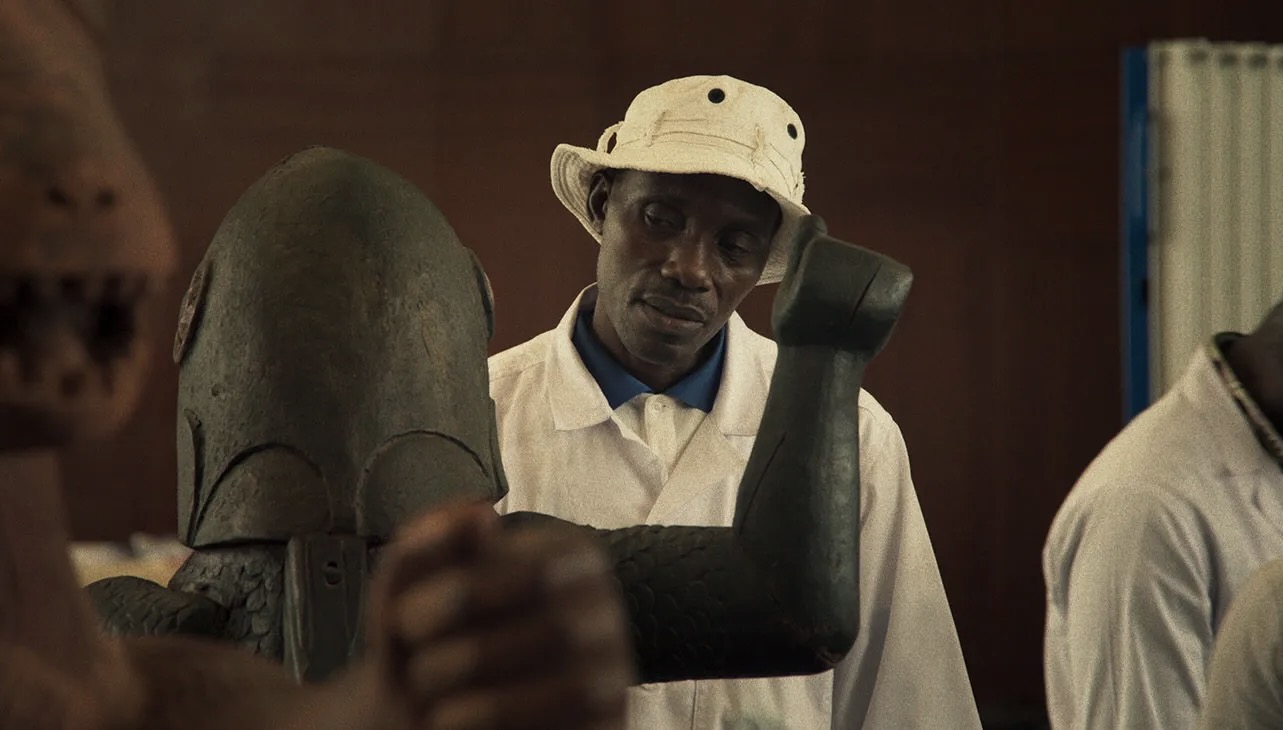
Mati Diop · 68m · DCP
Following France’s colonial plunder in the 19th century, the Kingdom of Dahomey lost thousands of artifacts to an exhibition in Paris. Mati Diop traces the return of 26 artifacts to their homeland, now the Republic of Benin, including perspectives from art historians, university students, and even from one of the statues. Dahomey, winner of the Berlin Golden Bear, confronts the legacy of colonialism, art ownership, and cultural restitution.
Tuesday, February 11th 7:00 PM · Saturday, February 15th 4:00 PM
Muna Moto (1975)
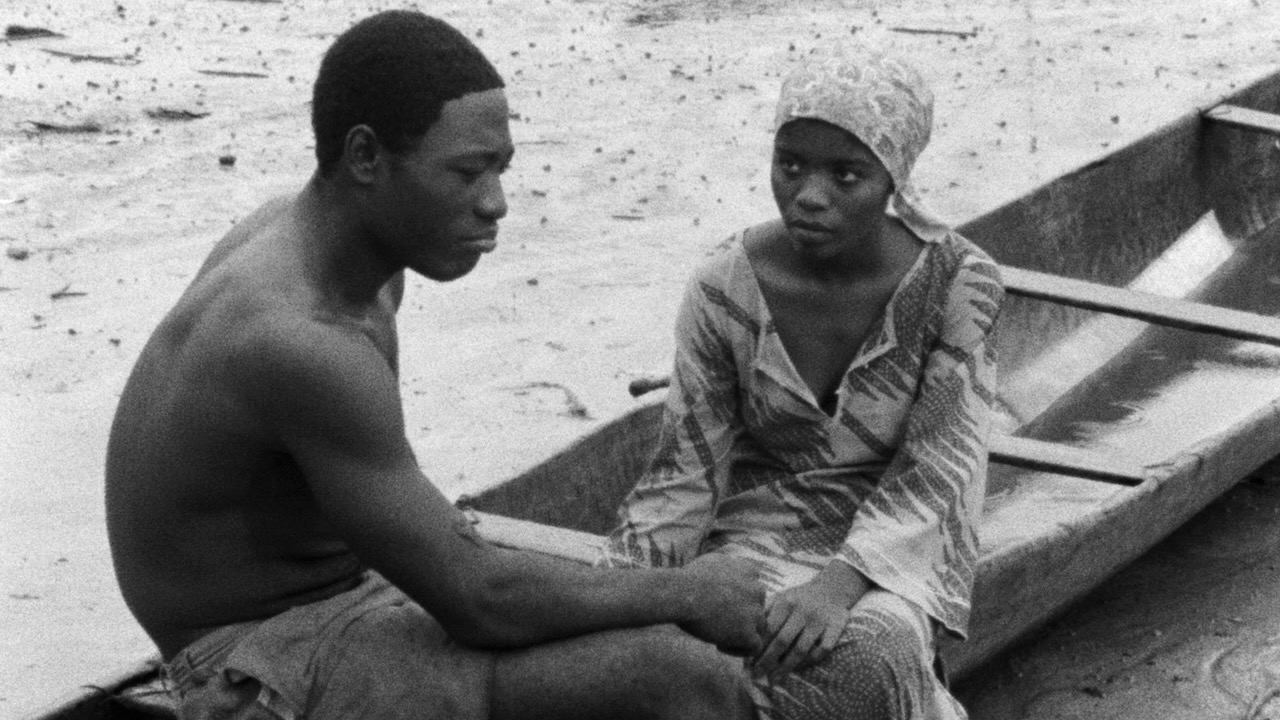
Jean-Pierre Dikongué-Pipa · 90m · Digital
Two lovers, Ngando and Ndomé, attempt to marry, but Ngando doesn’t have the money to afford Ndomé’s dowry. Seeking help, he turns to his uncle, who, wanting to raise her child as his, instead decides to marry Ndomé himself. Written in 1966 but only filmed in 1974 once Dikongué-Pipa could receive funding, Muna Moto aims to create a new visual style focused on and immersed in African culture.
Tuesday, February 18th 7:00 PM
Soundtrack to a Coup D’État (2024)
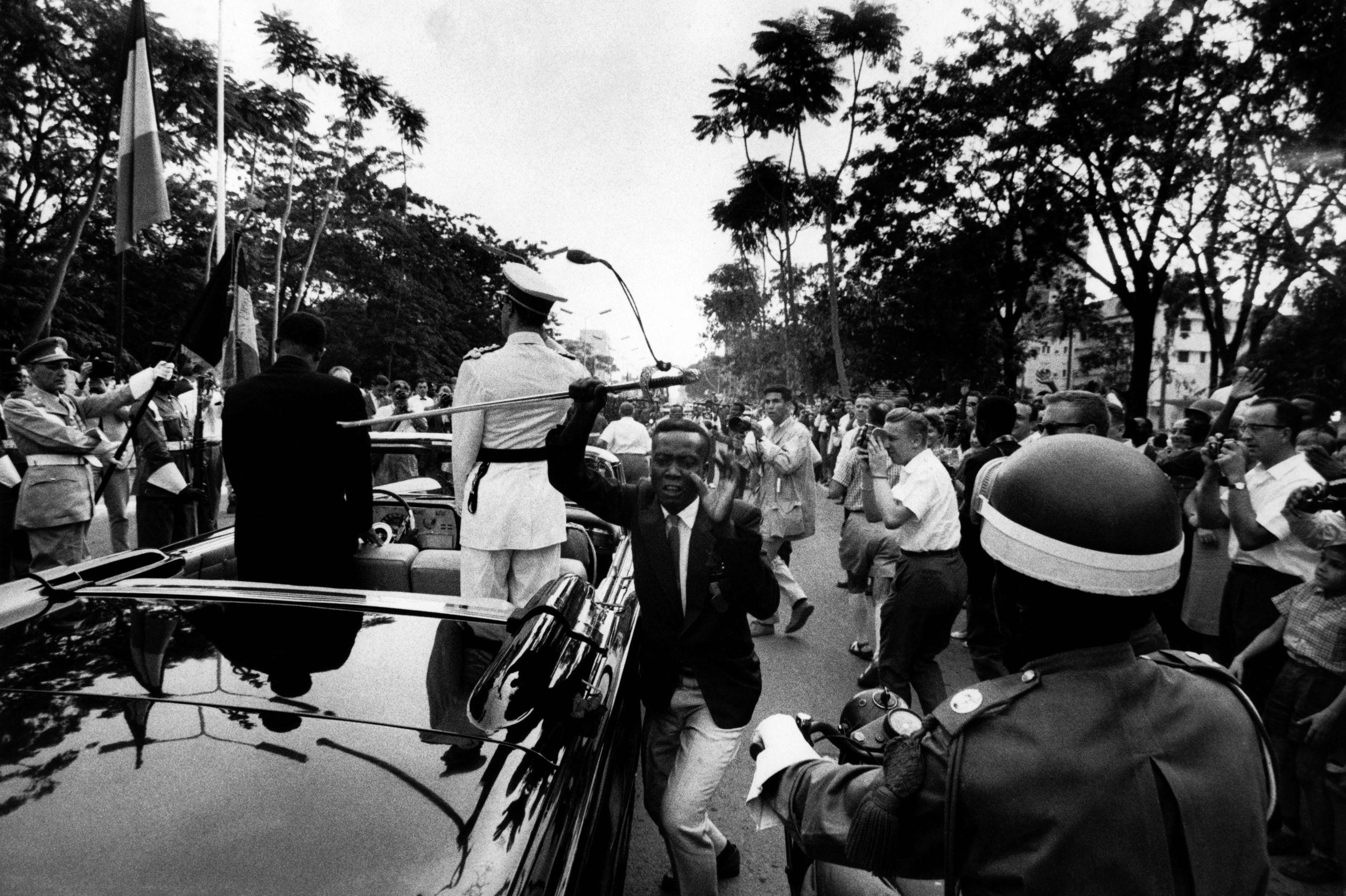
Johan Grimonprez · 150m · DCP
In 1961 the UN Security Council was stormed by soon-to-be-married jazz musicians Abbey Lincoln and Max Roach, alongside dozens of protestors, after the assassination of Congolese Prime Minister Lumumba, the country’s first elected leader after independence from colonial Belgium. Soundtrack is a dazzling exposé of this slice of Cold War history, where jazz music alternates at bebop-tempo between instrument of Black decolonization and CIA propaganda tool.
Tuesday, February 25th 7:00 PM
Soleil Ô (1970)
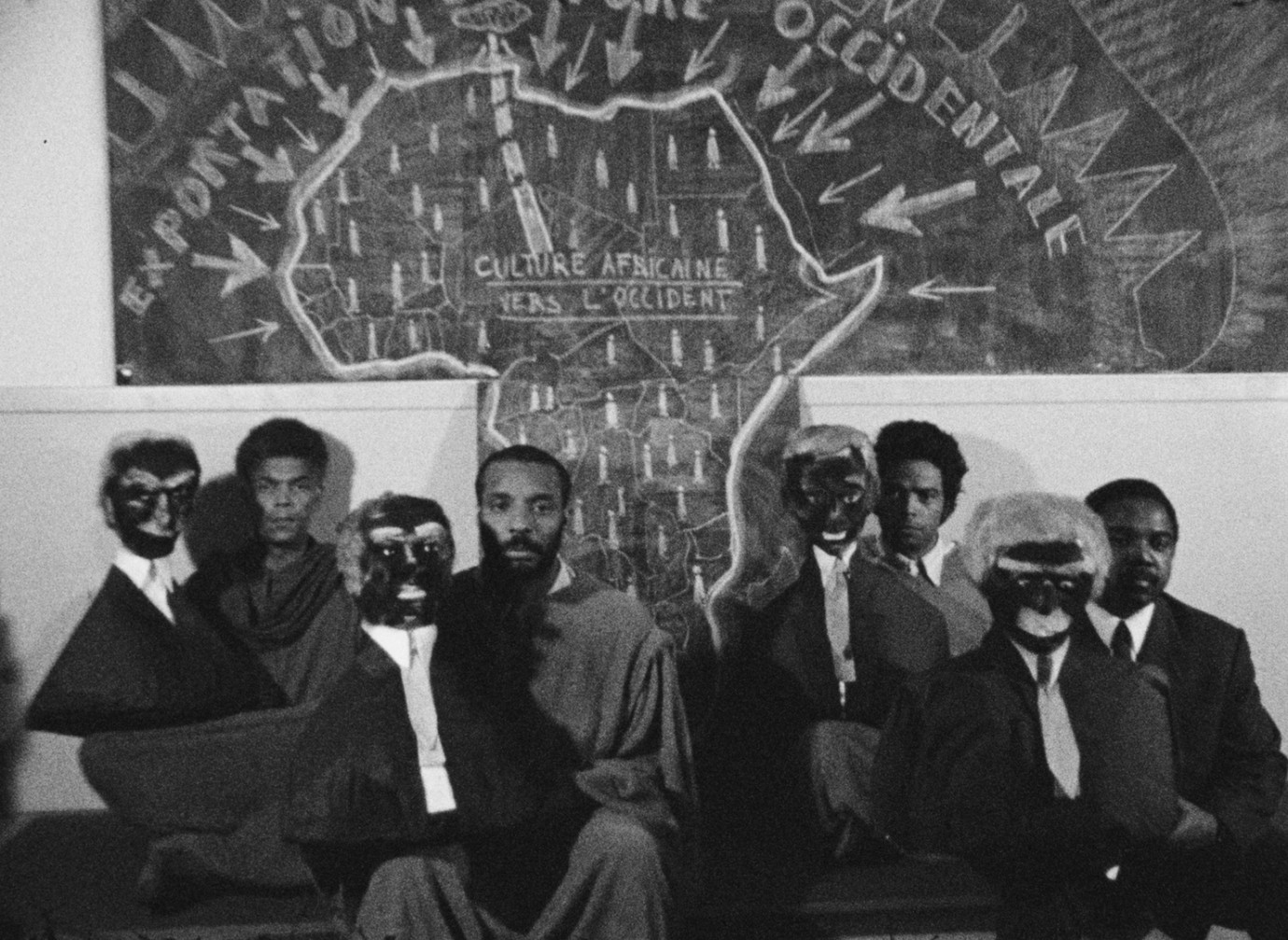
Med Hondo · 103m · DCP
Through a nonlinear narrative and biting humor, Med Hondo’s revolutionary feature debut captures a Mauritanian immigrant’s journey to Paris in search of work, cultural enrichment, and community. Despite his education and skills, he is met with hostility, objectification, and systemic oppression. Hondo’s exploration of Black identity and consciousness cemented his place as a key figure in African and world cinema.






